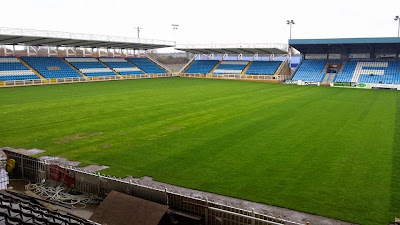 |
| Paul Coventry |
Paul Coventry was a regular fixture in the Rovers three-quarter line throughout the 1970s, Rovers’ most successful decade on the playing field. After making his debut in September 1970, it was a pretty sure bet that in any Rovers line-up you’d find Paul on the wing or at centre. In fact, in his 301 games he played 89 games on the left wing, 92 games at left centre, 41 games at right centre, 47 games on the right wing, 17 at stand-off and 15 off the bench for good measure. This gives you some idea of his versatility. In the 1973 Wembley final, he played on the wing outside Mick Smith, but the following year a broken arm kept him out of a second trip to Wembley. He came back from that and other injuries to play his part in Rovers’ Championship winning season. He enjoyed a benefit during the season 1981/82 awarded for eleven years of service, and left the following year to finish his career at Wakefield Trinity, where he linked up with former team-mate Harold Box. Without ever recording a huge try total in any season (his best season was 14 tries in 1973), he steadily accumulated 86 tries for Featherstone, which leaves him 18th on Rovers all-time try scoring list. Paul of course still serves Rovers nowadays, previously as club chairman, now as stadium co-ordinator.
Paul’s nephew Jamie started his professional career at Wheldon Road, his dad John having played for Castleford in the 70’s. However Jamie moved to Huddersfield and then came to Featherstone without making his mark there. His Rovers debut was on the wing in a big win against Leigh in April 1998. Showing some of his uncle’s versatility, Jamie played that year at full-back, wing, centre and of course was our stand-off in the Premiership final against Wakefield. His partnership with Ty Fallins at half-back during that thrilling run to the final brought the best out of Jamie. Over the next three years he was used as a utility back. After more than 50 starts in the Rovers team he left to join Batley, rejoining Rovers for a spell during the 2002 season, and then again last season at centre, before a nasty jaw injury caused his premature retirement. Jamie Coventry played at total of 76 games for Featherstone (18 off the bench) and scored 12 tries.




